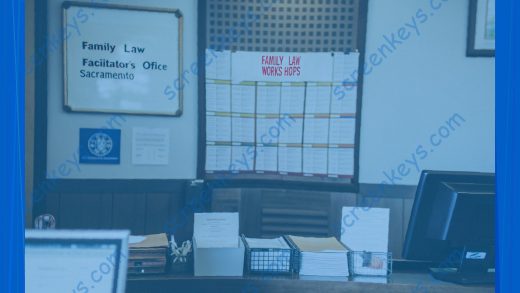The Basics of THC-A and Its Applications
THCA, or tetrahydrocannabinolic acid, is a naturally occurring cannabinoid produced by the cannabis plant. Cannabis plants have been found to create a number of cannabinoids so far, and studies have shown that THCA could account for about 95 percent of cannabinoids found in dry cannabis plants. When the cannabis plant is first harvested, it produces only THCA and other non-psychoactive acids. THCA itself isn’t psychoactive, but once it is heated or exposed to certain types of light, it converts to THC, the chemical that binds to the receptors in the brain and causes the "high" of cannabis use.
Simple decarboxylation changes THCA into THC through exposure to heat . The process, at its most basic scientific level, involves simply removing the carboxyl group from the compound, which causes it to transform into THC. This is what occurs when cannabis is burned as a means of consumption, but it is also possible to decarboxylate THCA without heat using chemical solvents or prolonged exposure to low levels of heat. This transforms the compound into THC, which is a psychedelic substance.
THCA fits into the overall cannabinoid family as a non-psychoactive compound. Its acidic form itself is not capable of providing any type of high. However, whether or not cannabis containing THCA is legal to sell depends on the point in the process of preparation that it’s at, and whether or not it has been decarboxylated.

South Carolina’s Cannabis Laws Explained
Under the current South Carolina cannabis laws, the possession of a maximum of 10 grams of "The whole unprocessed flower of the cannabis plant" is legal as long as it has .3% or less THC on a dry weight basis. Other than that penalty, the laws retain the maximum penalty of 30 days in jail and/or a fine of $200 for first offense simple possession of marijuana.
There is a medical marijuana law that permits use of low to no THC cannabidiol oil (CBD) that is helpful for seizure patients; however, it is supplied by a limited grower, and growing your own plants (even if you are a patient) is illegal.
In February 2018, THC is scheduled to go down to 0.6%, which would allow for medicinal marijuana; however, this is a criminal law, outside of the provisions of the 2014 S.C. Compassionate Care Act that provides for a limited exception to treat seizure patients with CBD oil.
There has not been a change in law concerning casual recreational use. A July 2017 bill was introduced to prohibit the cultivation of marijuana and to impose a 48 hours minimum mandatory penalty of 6 months in jail and 200 hours public service with a minimum fine of $5,000 for first offense.
While there are no pending bills to add THC to the current medical marijuana, casual use and low TCH oil focused CBD laws of South Carolina, there’s been a growing public sentiment since the Trump election that marijuana is an experience that once was taboo but no longer is.
We expect the legislature to move to legalize medical cannabis within the next few years as public sentiment for a vote rises and even though there is recent evidence against, the therapeutic benefits of some THC to address a number of chronic illness cannot be ignored.
Legal Status of THC-A in the State of South Carolina
Just like its place within the cannabis plant, THCA exists in a bit of a haze legally. Despite the plant’s shifting legality, specific metabolites and compounds are treated differently by law. THC, for example, is nearly universally prohibited. Cannabinoids that are derived from hemp, like CBD however, are allowed everywhere to a greater or lesser degree. Within the complexity of cannabis legality, THCA is somewhere in the middle. Its legal status relies on an evolving mixture of federal and state law, as well as relevant exemptions. Under federal law, substances are categorized with similar substances — or "scheduled" — and are organized into five groups. Schedule I covers substances with a high risk for abuse and a lack of accepted medical use. Schedule V includes the opposite: Low potential for abuse and a medical use that is widely accepted. Cannabis falls into Schedule I along with other drugs like heroin and ecstasy. THC is a primary psychoactive component of cannabis, so it too is Schedule I. THCA is the compressed source of cannabiol (as opposed to its molecular parents THC and CBD). While the characterization of THC’s legality is the same, experts disagree about the extent to which THCA falls under the same laws. Some argue that THCA is not prohibited by statute due to a loophole and only becomes illegal if intoxicating effects begin to set in. Others find that the generally defined language surrounding intoxicants applies. An opinion from the state attorney general offered clarity on this question. When asked, "Does the ineligibility for the Schedule VI exemption of ‘…a controlled substance other than marijuana as defined in Subdivision (12) of this section in the form of dried or cured leaves and flowers of the Cannabis sativa plant …,’ include THCA in its raw unprocessed form?" the answer returned was an unequivocal "yes." THCA is a derivative of Cannabis sativa in dried or cured form and therefore banned by existing laws. As for the driver of THC psychoactive effects, the preheat of raw THCA simply does not reach the temperature needed to create those effects. For now, at least, the legal status of THCA is clear-cut. The cannabinoid may be tentatively shifting towards a less restrictive position, but it currently falls under the same laws that prohibit THC.
Recent Legislative Developments Impacting THC-A
Continuing to use this space to look at recent legislative changes impacting THCA use in South Carolina, either of a statewide nature or having a local impact. Pending the final results of the two bills that we discussed before the session ended, both of which had passed the Senate but failed in the House, the one thing of more recent note is a bill proposed by the House Cannabis Study Committee on Wednesday. H.4243 (the "Cannabinoid Economic Opportunity Act), will be introduced in the House Guidelines and Rules Committee on Tuesday, January 8 before being taken up by Acting Speaker Jay Lucas.
As previously discussed, there is a dichotomy amongst marijuana and hemp law and legislative proposals in South Carolina. That seems to be continuing with the new bill that came out Wednesday which, if passed in its current form, would legalize not only industrial hemp (as previously noted, such legislation has previously died in the House and is in Committee stage in the Senate) and CBD oil for medicinal purposes but also allow terminally ill patients suffering from pain and debilitating disease to obtain a medical marijuana card (similar to the states surrounding South Carolina who have all legalized marijuana for recreational purposes). The bill would also change the current language in Section 44-53-110 of SC Code of Laws, 1976 to state that marijuana, which has been recategorized by current law as a Schedule I substance (keeping in mind that marijuana now has four known chemical components, all of which are, for now, looking to be legally kept Schedule I substances) would be recategorized to a schedule IV substance under the SC Uniform Controlled Substances Act, Act No. 65 of 2015.
Penalties for THC-A Possession in South Carolina
If currently found in possession of THCA in South Carolina, a first offense against possession of THCA is considered a "First off A1 misdemeanor" and as such, falling under the proposed threshold limit of possession, there is a potential to be charged, resulting in a maximum penalty of up to 30 days in jail and/or a fine of $500.00. Any THCA conviction resulting in a fine greater than $100.00 will also lead to participation in the S.C. Alcohol and Drug Safety Action Program. These penalties will apply for first offenses. Second or third versions of this offense may lead to harsher fines and an increase in length and number of days served in jail, which includes the possibility of house arrest. If you are at this point you will likely want to consider hiring a criminal defense attorney to get you out of a serious situation. It should be noted that violations of the South Carolina Controlled Substance Act, S.C. Code Ann. §44-53-110 et seq., include felonies. Because THCA is not currently a controlled substance listed in S.C. Code Ann. §44-53-210 , possession of it is not a felony (for the time being). It should also be noted that "THCA" in this case refers to the nifty three-dimensional molecular structure for the cannabinoid tetrahydrocannabinolic acid and not a minor natural metabolite, which you get from the leaves of any green crop like hemp, spinach or lettuce, for example. At this point in time, therefore, there is no statute or law that specifically and directly addresses the possession of THCA in South Carolina. But that does not mean that it is completely legal to have in South Carolina. It just means that the law doesn’t talk about it because they haven’t written any laws regarding it, except for what already exists for cannabis. Separate but equal legislation exists for "Posession with Intent to Distribute". It is far more serious than possession, but only if you are found to be distributing. If you are not distributing but are within "Possession" limits, the first offense is a "4th Degree Felony" resulting in a fine of $5,000.00 or up to five (5) years in jail. Only the police and judges interpret the law so you should avoid all complications and just hire a criminal defense attorney.
How South Carolina’s THC-A Laws Stack Up Against Other States
Currently, the states that have most similar laws to South Carolina’s regarding THCA are Georgia and Tennessee. South Carolina’s cannabis licensing laws for THCA are stricter than Georgia and Tennessee but very similar to Utah. Georgia and Tennessee provide more flexibility with respect to the amount of THCA that can be obtained. Opportunities are by lottery in Tennessee and by application fees in Georgia. Utah, on the other hand, restricts applicants to those with previously existing business in the cannabis industry.
Georgia and Tennessee both allow the use of cannabis oil which may or may not have THCA. Georgia allows cannabis oil with a THC content no higher than 5 percent and a minimum of 10 milligrams of THCA per milliliter. Tennessee also provides that cannabis oil with a THC content not to exceed 0.9 percent and a minimum level of 50 milligrams of THCA per milliliter may be dispensed. Only hospitals and universities may dispense or issue orders for the use of cannabis oil in Tennessee.
State license fees in Tennessee are as follows: $200,000 for each hospital; $250,000 for each regional university. Georgia does not have references to licensing fees in its scheme. Both Georgia and South Carolina allow patients to possess substances that may contain residual THC. This is a marked difference from other states such as Utah which in addition to restricting the attainment of a license also prohibits patients from possessing substances that contain residual THC. In South Carolina, THC residuals will be allowed in approximately 20 different products that are currently marketed as hemp based with a THC content of less than 0.3 percent weight/volume. While this helps South Carolina clarify that they are regulating THCA, it also makes it very difficult to determine what has been "adulterated or misbranded" in certain products.
Anticipating the Future of THC-A Legalization in South Carolina
The future outlook for THCA legality in South Carolina is far from certain. However, tracking societal changes and examining advocacy efforts can provide some insights into potential shifts in legislation. Currently, the national trend is leaning toward acceptance of medical cannabis in various forms. As more states have witnessed positive experiences with legal medical cannabis usage, public and political pressure mounts in other conservative or less permissive states to consider similar legislation. In South Carolina specifically, the recent discussion about the illegality of $9-THCA, the first reported incident of a lawmaker facing criminal charges because they were in possession of a federally illegal substance, and the current legislative efforts to address this issue may act as catalysts to a broader revision of laws around THCA and hemp-derived cannabinoids. Public opinion still plays a critical role in shaping legislation, particularly in conservative states like South Carolina. Polls reveal a growing acceptance of medical cannabis , and lawmakers are starting to take notice. As seen in other states, public support could accelerate the call for legislative change, but the timetable is uncertain. Advocacy groups continue to press for legalization and legitimate regulation of THCA in South Carolina, pushing the issue into political discourse. The persistent efforts by these groups not only increase public awareness but also encourage lawmakers to take individual stances on the matter. Over time, as more information becomes available about how THCA interacts with full-spectrum THC and how both are used in the treatment of various medical conditions, public perception may shift. While change in the law marries policy with legal clarity, changes in public perception are generally the underpinnings of new legislation. As acceptance rises, changes in the law are more likely to follow. It is, therefore, perhaps not surprising that concurrent with its prohibition of human-consumable THCA, South Carolina has experienced an increased focus on and consumption of hemp-derived cannabinoids.



